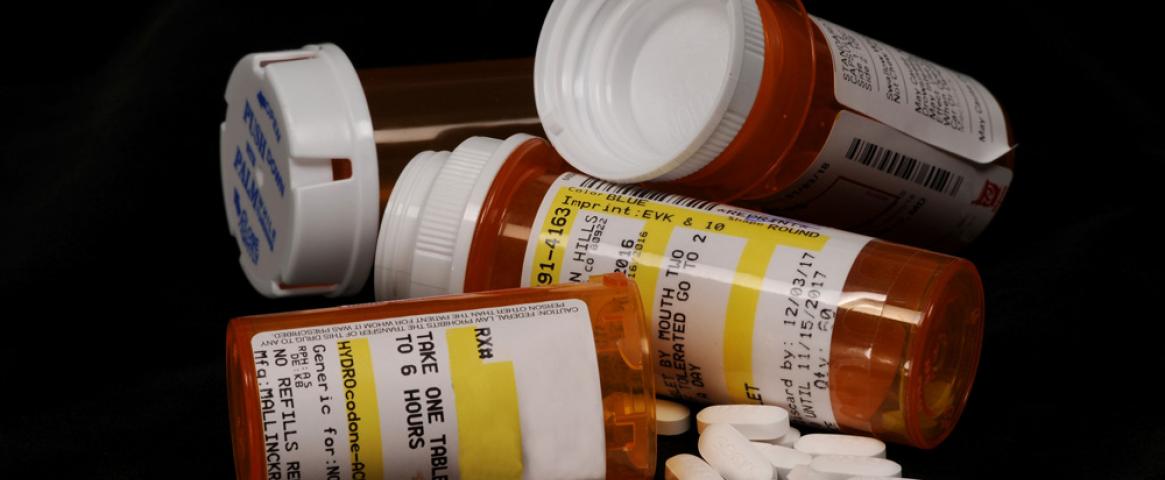By Margaret Gregory
Cheap and common Vitamin D supplements may help treat opioid addiction, a recent study in mice suggests.
Researchers at Massachusetts General Hospital (MGH) gave morphine, an opioid, to mice with varying degrees of Vitamin D deficiency. The team found the more Vitamin D-deficient a mouse was, the more withdrawal symptoms and other signs of opioid addiction it displayed. Feeding Vitamin D supplements to deficient mice tempered their morphine response. The findings were published in Science Advances on June 11.
The study was led by Dr. David Fisher, director of MGH’s melanoma program. Fisher’s research program focuses on ultraviolet (UV) rays, the components of sunlight that trigger Vitamin D production in our skin. In a 2007 study, he and colleagues found that in both mice and humans, Vitamin D synthesis is accompanied by the production of endorphins, “feel-good” hormones chemically related to opioids.
Fisher and colleagues stumbled upon the relationship between Vitamin D deficiency and opioid addiction when they dosed a Vitamin D-deficient mouse with morphine, causing it to experience the pleasure of UV exposure without synthesizing Vitamin D. Afterwards, it displayed an exaggerated opioid response, preferring to stay in the environment where it received morphine and craving even small drug doses.
Two thoughts entered Fisher’s mind after observing this response, he said. One was: Is the effect reversible? The other was: What does this mean for addiction in humans?
To address the first question, Fisher’s team compared mice with normal levels of Vitamin D to mice with Vitamin D deficiencies. When dosed with morphine, the deficient group took longer to flee a hot plate, indicating higher pain tolerance. They also lost more weight over the experiment (indicating fluid loss through diarrhea) and displayed more drug-seeking behavior as well as more extensive withdrawal symptoms — wet dog shakes, paw tremors, and bouts of compulsive grooming. When supplemented with Vitamin D, the deficient mice’s drug response matched that of regular mice.
Research in humans is consistent with these findings, Fisher and colleagues found. As part of the same study, they analyzed patients at MGH and found that those diagnosed with opioid use disorder generally had lower-than-normal Vitamin D levels.
The chemical similarities between opioids and endorphins may contribute to the relationship between Vitamin D deficiency and opioid addiction, Fisher said, noting that the body shuts down endorphin production and ceases sun-seeking behaviors when it detects adequate Vitamin D levels — like a heater clicking off when a room reaches the correct temperature. But opioids can hijack this process without synthesizing Vitamin D, he explained. Without an “off” switch, the body craves more drugs to stimulate the pleasure pathway, like a heater that runs no matter the temperature it detects.
If Fisher and colleagues’ results in mice hold up in humans, Vitamin D supplements may be a cheap and easy method for diminishing opioid cravings, Fisher suggests. He cautioned, though, against viewing the findings with too much optimism. “Opioid addiction may not be reversible in humans as it seems to be in mice,” he said, urging addiction scientists to conduct a similar study in humans.
The prospect of treating opioid addiction with Vitamin D is attractive, said Dr. Wilson Compton, deputy director of the National Institute on Drug Abuse in North Bethesda, Maryland, who was not involved in the study. Although effective drug-based treatments exist for opioid addiction, such programs leave patients vulnerable to relapse when treatment is stopped. In addition, some treatments must be administered at licensed facilities, rare in rural areas.
Although preliminary, the idea of Vitamin D supplementation is a “novel” direction in the addiction-treatment field, Compton said. Unlike experimental treatments, he added, Vitamin D supplements are “not terribly risky” and are easily sourced.
Dr. Steve Feldman, a dermatologist at Wake Forest Baptist Health in Winston-Salem, North Carolina,, who was not involved in the new research, called Fisher’s study an “elegant, convincing way to show that Vitamin D is related to opioid signaling.” However, he questions the notion that adequate Vitamin D synthesis stymies sun-seeking behaviors. After all, he noted, most people soak up the sun longer than is healthy.
“There’s a reason Disney built their place in Florida,” said Dr. Feldman, “rather than Buffalo, New York.”
Margaret Gregory is a science educator in Chadron, Neb. She is pursuing her master’s degree in science writing through Johns Hopkins University. She can be reached at maggievinton9@gmail.com.
This story was produced as part of NASW's David Perlman Summer Mentoring Program, which was launched in 2020 by our Education Committee. Gregory was mentored by Siri Carpenter.
Main image: Prescription opioids, including the hydrocodone pictured above, may more easily trigger addiction in Vitamin D-deficient individuals, according to a recent study. Credit: K-State Research and Extension/Flickr .


